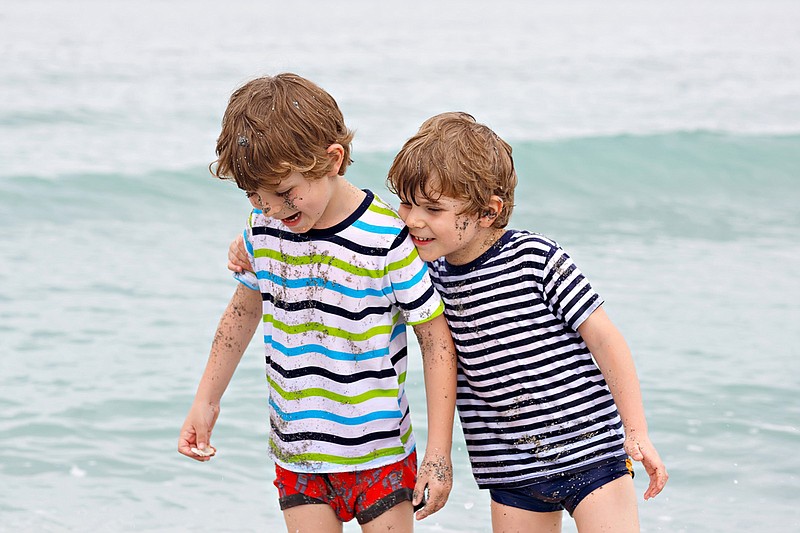Dear Mr. Dad: Our baby is only three months old, but I'm already craving another one! My husband is worried that it might be too much too soon. Do you recommend having two babies this close together? What are the advantages and disadvantages?
Unfortunately, there's no right answer, so I can't give you a strong recommendation either way. A lot of parents say that having two children close together makes life easier, while others say it makes an already-stressful situation even more stressful. Of course, that's all in the eye (or nursery) of the beholder.
But before we get to that, there's one super important question that trumps everything else: Are you physically ready to have another baby? If your first was born by cesarean section, you have a significantly higher risk of uterine rupture during the second pregnancy. But C-section or not, your body may not have fully recovered from the first birth. The only way to be sure is to talk it over with your OB.
Okay, assuming the doctor has given you the green light, let's take a look at some of the pros and cons. On the plus side:
They literally grow up together. When there's a small gap between the children (yours could be as little as 13 months), it's almost like having twins. When the children are more than five years apart, it's kind of like raising two only children.
Your diaper changing, burping, soothing, rocking, and feeding skills won't get rusty.
Anecdotally, children close in age (say 18 months or less) seem to have less sibling rivalry - and are closer emotionally - than children separated by a bigger gap.
They'll always have a companion. When the children are entertaining each other, there may be less pressure on you to do so. In addition, the younger child will constantly be trying to imitate the older one, which means (a) it'll take less effort on your part to teach them, and (b) the younger one will learn just about everything much faster than the first did.
As they grow older, they can be each other's greatest ally. They'll help each other adjust to new situations (like first days at school), and they may even be able to play on the same sports teams.
It could be cheaper. You'll be able to get double duty out of clothes and toys.
You won't have to babyproof the house twice. It'll already be done when number two arrives.
It might be a little better for your career. If you or your husband were planning to take some extended time off work to be with your children, having two close together reduces the time you'll be out of the workforce.
There are, of course, some disadvantages:
The first few years are going to be grueling for both of you. Those sleepless nights and lack of time to yourself (not to mention the back pain) will be extended for another couple of years. If the children were spaced further apart, you'd (possibly) get a break in between.
You'll be changing a ton of diapers.
It'll be hard to carve out undivided, quality time to spend separately with each child.
The children may resent being treated as a single unit (which frequently happens) and the lack of individual identity.
Having an infant can be tough on a marriage. If you're already struggling, bringing another baby into the picture isn't going to make things any better.
One thing I strongly recommend is that you and your husband spend some serious time discussing these issues and how the spacing decision will affect you as a couple and as individuals. It's not a decision to take lightly, so allow plenty of time to go over your options.
Armin Brott is the author of "Blueprint for Men's Health," "Your Head: An Owner's Manual."
Tribune News Service

